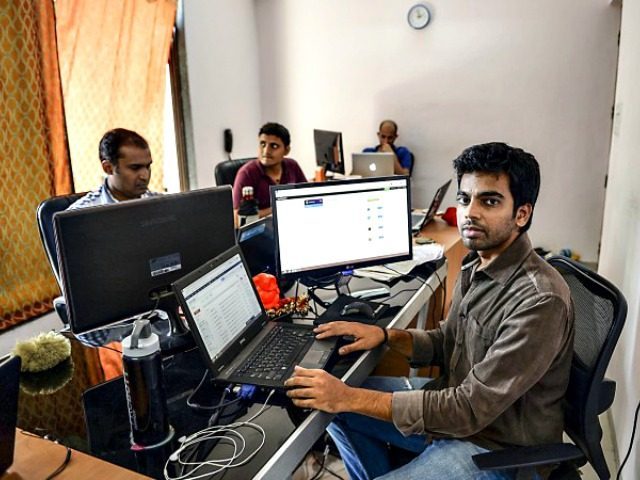There is no shortage of U.S. technology graduates, says a detailed study in Bloomberg.com, which normally echoes Fortune 500 employers in demanding more imported H-1B visa-workers.
“Americans have plenty of education, talent, and experience — but an ever-ready supply of less expensive and more dependent guest workers gives companies less incentive to invest in them,” wrote author Rachel Rosenthal, under the headline, “Tech Companies Want You to Believe America Has a Skills Gap: But what they really want is a steady supply of cheap, dependent IT workers.”
The report is unusual because most columnists at Bloomberg.com favor large-scale labor inflows, as does owner Mike Bloomberg. For example, columnist Noah Smith recently denounced Eric Weinstein’s criticisms of the visa-worker pipelines, while welcoming a public debate with Weinstein, an investment manager at Thiel Capital.
But Rosenthal asserts there is no shortage of skilled Americans, that the visa-worker inflow does cut American wages, push Americans out of jobs, and reduce corporate investment in U.S. training and education:
American citizens and permanent residents have been graduating with a record number of bachelor’s degrees in computer science and engineering over the past five years. In 2018, U.S. colleges and universities awarded roughly 365,000 undergraduate STEM degrees, up 60% from a decade earlier, according to calculations based on data from the National Center for Education Statistics. Of that total, 92% went to Americans and permanent residents. Meanwhile, test scores among seniors majoring in computer science in the U.S.“substantially outperform” those in China, India, and Russia, according to research published in the Proceedings of the National Academy of Sciences. “The skills advantage of the United States is not because it has a large proportion of high-scoring international students,” a group of academics and experts found.
…
What we see is an industry awash with supply. “The story in Washington is that we have this STEM skills gap and U.S. students are just not capable. What the data shows you is that, in fact, U.S. students are both interested and capable of doing this kind of work,” said Ronil Hira, an associate professor of political science at Howard University who studies visa programs. “None of the evidence indicates a significant shortage.”
Rosenthal’s criticism is important because it helps reporters and editors at many establishment media outlets push back against the establishment narrative of labor shortages. The establishment media — such as Jeff Bezos’s Washington Post — rarely talk about the damage felt by Americans as Congress and the Fortune 500 companies flood Americans’ labor market.

COMMENTS
Please let us know if you're having issues with commenting.